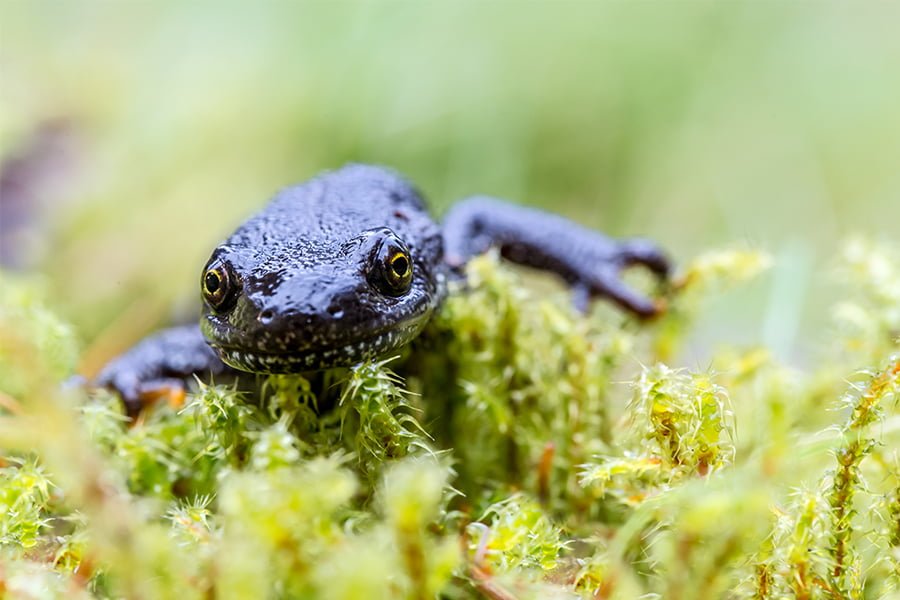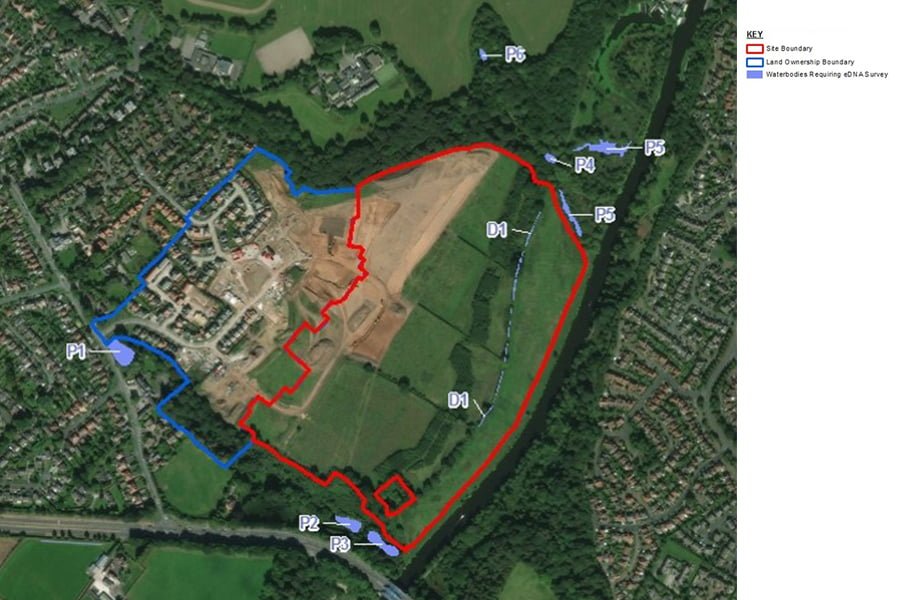
Natural England is rapidly expanding the areas where District Level Licencing (DLL) can be used if Great Crested Newts (GCN) are found on or near a development site.
You may be familiar with the “traditional” approach to licencing, involving a period of surveys, fencing, newt trapping and pond creation.
The purpose of the district-level scheme is to channel funds towards the creation of ponds in areas where GCN will benefit the most whilst also speeding up the process of licencing and development. If you have GCN on site, you will still need a licence, but where the district-level scheme is in place, you have the option of contributing to an off-site pond creation scheme, avoiding the need for detailed surveys and trapping schemes.
Where is District-Level Licencing Available?
Bedfordshire, Buckinghamshire, Cambridgeshire, Cheshire, Essex, Gloucestershire, Greater Manchester, Kent and Medway, Leicestershire (except Blaby), Leicester City, Norfolk, Oxfordshire, Rutland, Rushcliffe and South Kesteven, Shropshire, Somerset (excluding the former West Somerset district and Exmoor National Park), Suffolk, Swindon, Wiltshire and Woking.
The ultimate goal is to make District Level Licensing available throughout England.
Who runs the DLL Schemes?
Natural England runs many District Level Licensing schemes but can outsource the pond creation aspects. Some DLL schemes are run by Local Authorities and some by NGO’s, notably Nature Space.
What are the pros and cons of DLL to developers?
Pros:
Cons:
What is our advice to clients?
Case study of District Level Licencing
Full planning approval was granted on appeal in October 2019, for a ca 200 house residential development in Cheshire.

A small population of GCN were identified in one off-site pond. TEP’s client, one of the UK’s leading housebuilders, wanted to start on site as soon as possible following planning approval. However, as the appeal was granted in winter months, under a traditional licensing approach, trapping could not commence until the following March or April 2020 due to the hibernation season.
TEP produced a GCN mitigation strategy that was specifically worded so that the new DLL approach could be used without the need for discussions with the Local Planning Authority ecologist, avoiding potential delays.
Under the DLL scheme, the client made a one-off payment to cover the cost of creating an off-site GCN pond and terrestrial habitat. The cost was approximately £10,000 more than a traditional licensing approach. However, the District Level Licensing enabled our client to start on site as soon as the licence was issued, in February 2020; a traditional approach may have delayed the start until May 2020. In this instance, the three month time saving more than compensated for the one-off pond creation cost, and the county GCN population benefitted from the additional habitat in an optimum area.
If you would like to discuss any District Level Licensing enquiries, please contact our ecology team by emailing ecology@tep.uk.com.
To discover more from our ecologists click here.








